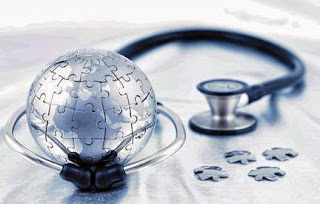The Importance of Medical Coding in the Healthcare Industry
In the intricate ballet of healthcare, medical coding takes center stage. It's the conductor that orchestrates the various components of the industry. Accurate coding, like a well-tuned symphony, ensures that healthcare providers are compensated fairly for their services, patients receive the appropriate care, researchers can unravel the mysteries of diseases, and insurers efficiently process claims. It's the silent hero that safeguards against errors, fraud, and legal complications while promoting ethical practices and transparency.
Moreover, medical coding is an essential cog in the wheel of healthcare quality improvement. By meticulously categorizing and analyzing coded data, healthcare institutions can identify areas for enhancement, refine patient care processes, and ultimately elevate the quality of healthcare. In the grand tapestry of healthcare's evolution, medical coding isn't merely a supporting character; it's a transformative force driving the industry toward greater efficiency, precision, and, most importantly, better patient outcomes. Thus, while it may remain hidden from public view, its influence permeates every facet of the healthcare ecosystem, underscoring its indispensable role in shaping the healthcare landscape for the better.
Accurate Billing and Reimbursement
One of the primary functions of medical coding is to facilitate accurate billing and reimbursement. Healthcare providers rely on medical codes to document the services they provide to patients. These codes are then used to generate bills for patients and insurance companies. Accurate coding is crucial to ensure that providers are compensated fairly for their services. Any errors in coding can result in claim denials, delays in reimbursement, and financial losses for healthcare institutions.
Patient Care and Treatment Planning
Medical codes are not just about money; they also play a vital role in patient care and treatment planning. Accurate coding helps maintain detailed and standardized records of patient diagnoses, procedures, and treatments. This information is invaluable for healthcare providers when making clinical decisions, monitoring a patient's progress, and planning future treatments. For instance, a patient's medical history and coded data can assist in identifying potential health risks, allergies, or contraindications for certain medications or procedures.
Public Health and Research
Medical coding is fundamental to public health and medical research. By aggregating and analyzing coded healthcare data, researchers and public health agencies can identify trends, track disease outbreaks, and assess the effectiveness of healthcare interventions. The data derived from medical coding outsourcing services also contribute to the development of evidence-based guidelines and healthcare policies, ultimately improving patient care on a broader scale.
Health Insurance
Health insurance companies heavily rely on medical coding to determine coverage and process claims. Accurate coding ensures that patients receive the benefits they are entitled to and that insurance companies pay the appropriate amount for covered services. It also helps in fraud detection by flagging irregularities or patterns that may indicate fraudulent claims.
Legal and Ethical Compliance
Medical coding is closely linked to legal and ethical compliance in healthcare. Accurate coding ensures that healthcare providers adhere to industry regulations and ethical standards. It helps prevent overbilling, upcoding (billing for a more expensive service than was provided), and other fraudulent activities that can lead to legal consequences and damage the reputation of healthcare institutions.
Quality Improvement
Coding data also plays a significant role in healthcare quality improvement initiatives. By analyzing coded information, healthcare organizations can identify areas for improvement in patient care processes and outcomes. This data-driven approach helps healthcare providers implement changes and best practices to enhance the quality of care they deliver.
Revenue Cycle Management
Effective revenue cycle management is essential for the financial stability of healthcare institutions. Accurate medical coding is a cornerstone of this process. It ensures that claims are processed quickly and correctly, reducing the risk of denied claims and revenue loss. It also helps healthcare organizations forecast revenue accurately and make informed financial decisions.
Streamlining Administrative Processes
In addition to its financial implications, medical coding plays a critical role in streamlining administrative processes within healthcare organizations. It helps organize patient records, simplifies the billing process, and facilitates communication between healthcare providers, insurance companies, and regulatory bodies. This streamlining of administrative tasks allows healthcare professionals to focus more on patient care and less on paperwork.
Accountability and Transparency
Accurate and standardized medical coding promotes accountability and transparency in healthcare. Patients have the right to know the details of their diagnoses and treatments, and medical codes provide a universal language for conveying this information. Transparency in coding ensures that patients are well-informed about their healthcare journey and can actively participate in decisions regarding their treatment.
Global Standardization
Medical coding is not limited to a single country or region. It operates on a global scale, providing a standardized language for healthcare information worldwide. This standardization is particularly important in a world where patients may seek medical treatment in different countries or when healthcare organizations collaborate across borders.
Conclusion
In conclusion, the importance of medical coding in the healthcare industry cannot be overstated. It is a linchpin that holds together various aspects of healthcare, from patient care and treatment planning to financial stability and compliance. Accurate and standardized medical coding not only ensures that healthcare providers are compensated fairly for their services but also contributes to better patient outcomes, supports medical research, and fosters transparency and accountability. As the healthcare industry continues to evolve, the role of medical coding will remain integral in shaping its future, ultimately working toward the common goal of providing high-quality, accessible healthcare to all.



Comments